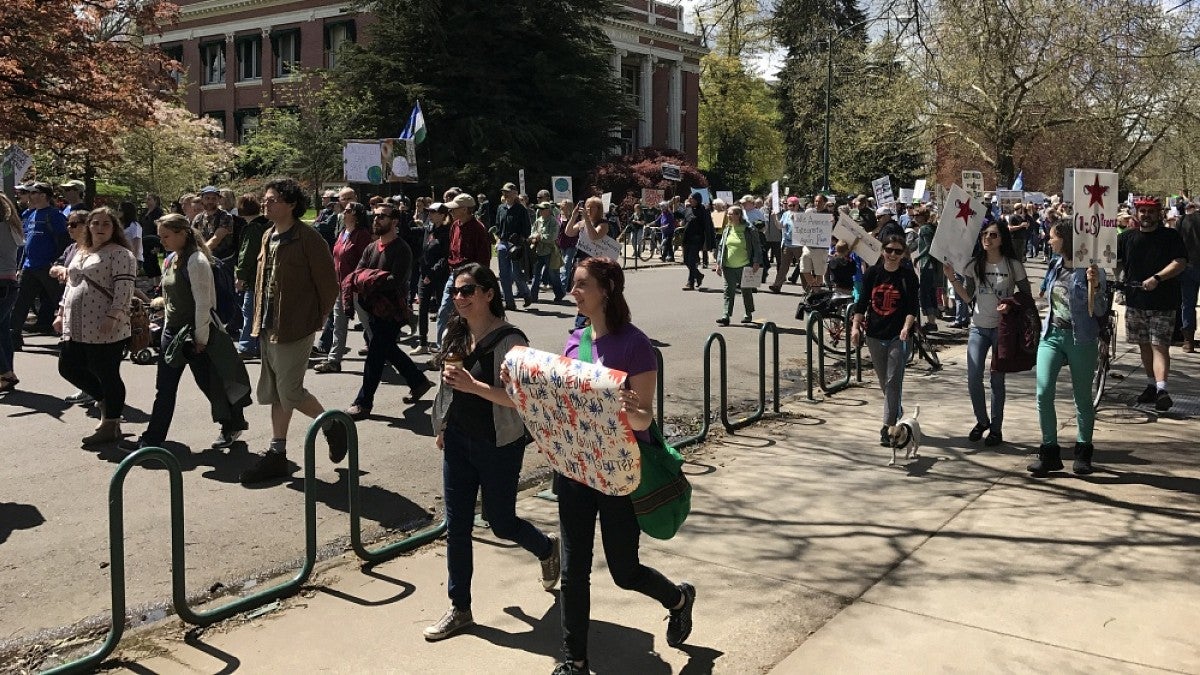Questions about the role researchers should play in publicly advocating for science funding will be addressed in a panel discussion Monday, May 15, in the Erb Memorial Union.
The event, organized by the UO’s Office of the Vice President for Research and Innovation, will provide guidance on appropriate science advocacy for public employees that conveys a clear message respectful of scientific integrity. The event runs from 3:30 to 5 p.m. in the EMU Gumwood Room.
“Researchers are concerned about the role of, and support for, science within the new presidential administration,” said David Conover, UO vice president for research and innovation. “Many scientists are re-evaluating long-held beliefs that one should not engage in debates on policy or participate in political discourse for fear that public trust in the impartiality of science will be undermined.”
The April 22 Eugene March for Science highlighted the challenges now being faced by the research community. The event drew about 2,000 science supporters to a rally at the UO’s Memorial Quad followed by a march to the Federal Courthouse.
UO faculty members were among those taking part in the event. Increasingly, more and more UO researchers are speaking out in support of the scientific enterprise, prompting new questions about being politically engaged as scientists.
The May 15 event will include a brief panel discussion moderated by Conover followed by a question-and-answer session and open dialogue with the audience.
The panelists are:
- Janine Benner, assistant director for planning and innovation, Oregon Department of Energy, and former Obama administration official and congressional staffer.
- Betsy Boyd, associate vice president of federal affairs at the UO.
- Cass Moseley, UO research professor, associate vice president for research and director of the Institute for a Sustainable Environment.
- Kevin Reed, UO vice president and general counsel.
- Doug Toomey, UO professor in the Department of Earth Sciences.
The forum will be focused on guidance for scientists, but all members the UO community with an interest in public engagement, science communication or advocacy are welcome to attend. It will be streamed live on the UO Channel.


